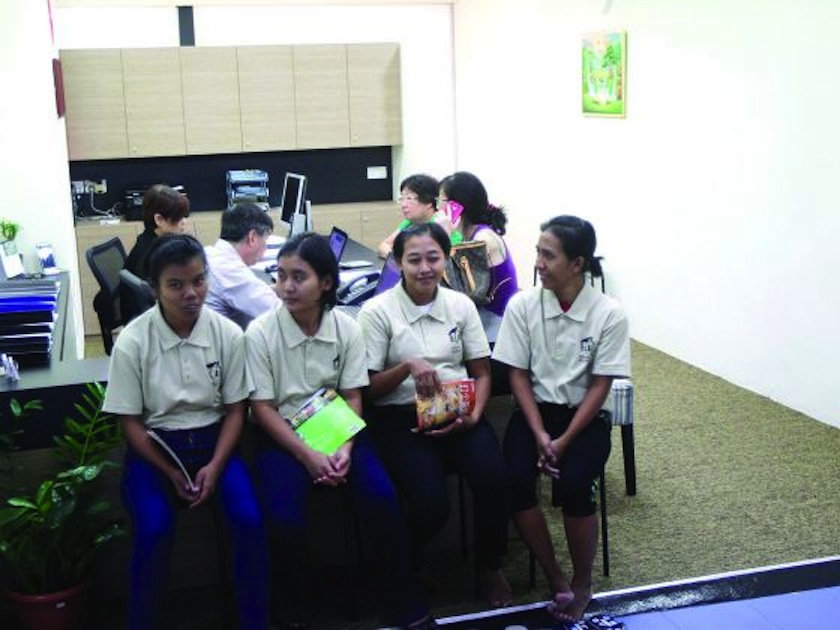SINGAPORE, Oct 8 — Employers will not be allowed to hold on to the paid salaries and other money belonging to their foreign domestic workers from next year.
The new Work Permit condition, which will take effect from January 1 next year, will protect both parties from money-related disputes, said the Ministry of Manpower yesterday.
The ministry received an average of about 600 cases of salary disputes a year, and the majority of these cases are related to disputes over salary safekeeping.
Any breach of a Work Permit condition is an offence under the Employment of Foreign Manpower Act (EFMA), and the authorities will act on complaints lodged.
Employers who flout the rules risk being fined up to S$10,000 (RM30,021.00) and/or jailed up to 12 months.
“The practice of employers safekeeping the money of foreign domestic workers poses inconveniences and risks to both parties,” said the ministry.
Foreign domestic workers who have no direct access to their money will have to approach their employers whenever they need their money, said the MOM.
Employers will have to deal with the “inconvenience of tracking the correct amount of money” to be returned to their domestic help.
They may not do proper documentation and may face claims lodged by foreign domestic workers “who may not be comfortable to ask for the return of (their) money”, said the MOM.
The MOM cited some examples of problems that can arise from safekeeping arrangements, such as disagreement over the amounts kept and an employer having seizures and falling into a coma, leaving the helper unable to obtain her money.
In another case, a worker had accumulated S$11,000 under a safekeeping arrangement with the employer. When she was ready to take back her money, the employer was facing financial difficulty and could only pay in instalments.
Reiterating that it is a legal requirement for employers to pay their domestic help “in full and on time”, the MOM recommended that salary payments be done electronically.
The ministry said that employers can help their domestic workers apply for a bank account, such as the POSB Payroll Account, during the Work Permit issuance process.
Organisations that help foreign domestic workers, such as the Centre for Domestic Employees and Humanitarian Organisation for Migration Economics (Home), have previously said employers should not be allowed to keep any money belonging to their employees.
Home, a non-governmental organisation, has called on the Government to make it compulsory for workers to be paid electronically. It has also recommended setting up a statutory fund for workers who are not paid by their employers because of serious financial difficulty or when their employers become insolvent.
Of the 872 cases involving foreign domestic workers that Home handled from April last year to March this year, nearly 40 per cent (342) involved salary-related issues.
The MOM should allow transfers for workers whose complaints of employers holding on to their money are verified, a Home spokesperson added.
Yesterday’s announcement comes days after the Ministry of Law said it would impose aggregate loan caps and the self-exclusion framework for borrowing from licensed moneylenders to all foreigners residing in Singapore. They include foreigners on Work Passes, Long Term Visit Passes, Short Term Visit Passes, Dependent’s Passes and Student Passes.
The MOM will impose administrative penalties on foreign work-pass holders who borrow from unlicensed moneylenders.
The number of foreigners borrowing from licensed moneylenders has shot up from 7,500 in 2016 to 35,000 in the first half of this year alone.
The ministries said foreigners residing in Singapore with annual incomes of less than S$10,000 will not be able to borrow more than S$1,500 in total from licensed moneylenders. Many foreign domestic workers will fall into this category.
Foreigners residing in Singapore earning S$10,000 to less than S$20,000 annually will have an aggregate loan cap of S$3,000. — TODAY






















